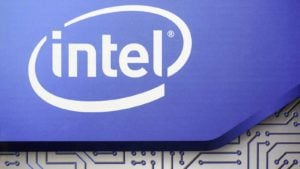The past five years have not been good for buyers of value stocks.
The iShares S&P 500 Growth ETF (NYSEARCA:IVW) delivered a return of more than 70% between 2015 and 2019 compared to a 41% return for the iShares S&P 500 Value ETF (NYSEARCA:IVE).
Overall, value stocks have been underperforming their growth brethren since at least 2007.
“The narrative that actually explains the performance is that value has been getting cheaper and cheaper. It’s gone from trading at about one-third the valuation multiples of growth stocks to roughly one-eighth the valuation multiple,” Research Affiliates chairman Rob Arnott told CNBC in December.
Arnott went on to suggest that if the economy slows down at some point in 2020, growth stocks will have nowhere to hide — leaving value stocks to attract the lion’s share of the buyers.
To find my 10 value stocks to own in 2020, I will recommend one stock from the top-10 holdings of the iShares Russell 1000 Value ETF (NYSEARCA:IWD), a second stock from the 11th-largest weighting through the 20th, a third stock from the 21st-largest weighting through the 30th and so on, up to the 100th-largest stock.
To make things even more diversified, I’ll make sure my picks represent at least nine different sectors.
May the best value stocks win!
Value Stocks to Own in 2020: Comcast (CMCSA)

My first selection is Comcast (NASDAQ:CMCSA), the cable company that’s transformed itself into a massive creator of television and movie content in recent years.
Over the past 52 weeks, CMCSA stock has delivered a total return to shareholders of about 33% — more than six percent greater returns over the same period. Trading at 14.4 times its forward earnings and 2 times sales, Comcast is a good value stock to own if you believe people will continue to watch television and movies.
In 2020, look for Comcast to bring out its Peacock video streaming service to compete with the plethora of other services already out there.
“The upcoming streaming service will cost Comcast $2 billion in investments. Management expects costs peaking at 1% of Comcast’s revenue, but that the service will achieve breakeven by the fifth year,” InvestorPlace’s Chris Lau stated in late December.
Add in its legacy cable business, along with Universal Parks and Resorts, and you’ve got the makings of a great long-term hold.
Activision Blizzard (ATVI)

My second selection also comes from the communication sector. With nine sectors to choose from, I had to double up somewhere.
Having read an article about the 7 Reasons Why Video Gaming Will Take Over, choosing Activision Blizzard (NASDAQ:ATVI), one of the world’s leading video game publishers, seemed to be the right call.
Over the past year, ATVI stock delivered a decent total return of about 28% — comparable to the markets total return of nearly 27%. I’m confident it can do a whole lot better. Trading at 25.5 times its forward earnings and 6.8 times sales, it’s not exactly cheap. However, given the potential of gaming and esports over the next decade, you have to pay up for potential growth.
My InvestorPlace colleague, Luke Lango, recently called ATVI, one of the 15 best stocks own in 2020. He believes the introduction of the first new video game consoles since 2013 is a big reason to get on board.
In December, I doubted ATVI could get to $80 in 2020. My colleague’s comments, however, have me questioning my original thoughts. In either case, this value stock is a long-term buy to hold for years to come.
McDonald’s (MCD)

Next up from the value stocks camp are consumer discretionary stocks.
Although it lost $4 billion in market capitalization in a single November day when McDonald’s (NYSE:MCD) CEO Steve Easterbrook was fired for having a relationship with an employee, it’s managed to claw back some of those losses in the two months since.
Over the past 52 weeks, MCD stock — thanks in part to Easterbrook’s dismissal — delivered a less-than-stellar total return of 20.2%, underperforming the markets by a considerable amount.
Trading at 25 times its forward earnings and 7.8 times sales, it’s priced like it’s the best restaurant stock on the planet. It can’t afford to go into a sales funk in 2020, or investors could see MCD stock trading under $200 for an extended period.
Nonetheless, as InvestorPlace’s Josh Enomoto said about the Golden Arches recently:
“McDonald’s is a proud member of the dividend aristocrats. It has increased its payout consistently over a 43-year period. If a downturn were to impact the markets, MCD stock is a name you’ll want to own.”
I couldn’t agree more.
Coca-Cola (KO)

If I could only own two stocks in a recession, McDonald’s and Coca-Cola (NYSE:KO) would be about as good a one-two punch as I can think of.
Sure, Coca-Cola’s struggled mightily in recent years to remain relevant in a world that’s moved on from the company’s syrupy drinks. But CEO James Quincey has made some big moves to make sure it stays a major player in the world of non-alcoholic beverages.
Trading at 24.8 times its forward earnings and 7.3 times sales, it’s neither cheap nor expensive — but it is what I would term as fairly valued with room for growth.
However, as I said in September, in addition to the company’s great products, it’s got some equity investments that are likely to take off in 2020. Add to it a 2.8% yield, and you’ve got a value stock to stick in a drawer if there ever were one.
Phillips 66 (PSX)

The thought of owning fossil fuel-related stocks in an era of renewable energy might seem pointless. But until we can turn off the oil switch, there still is a place in your portfolio for a company like Phillips 66 (NYSE:PSX).
It’s a quadruple threat with pipelines, refineries, chemicals business and gas stations.
InvestorPlace’s Aaron Levitt recently called PSX a value stock that generates real cash flows from its diversified business model. When it comes to energy stocks, Levitt knows his stuff. If he likes Phillips, I have to go along with him.
Currently, PSX stock is trading at 10.1 times its forward earnings and just 0.4 times sales. So, if I have to own an energy stock, this is one of the few I’d be comfortable holding despite the fact it underperformed the markets over the past year.
Furthermore, it might not be Warren Buffett’s favorite stock — that honor goes to Apple (NASDAQ:AAPL) — but he still owns around $535 million or 1.2% of the company.
Berkshire Hathaway (BRK.A, BRK.B)

JPMorgan (NYSE:JPM) just reported the most profitable year for a U.S. bank in history. It was so good, President Donald Trump was asking for thank you’s from the company. Further, analysts are starting to come around about bank stocks in 2020.
So, why recommend Berkshire Hathaway (NYSE:BRK.A, NYSE:BRK.B) as my pick for the financial sector?
For one, Berkshire’s top-10 holdings include a lot of banks; A total of $67 billion to be exact. Secondly, BRK is ready for a breakout year. Over the past year, it’s managed a total return of just 16%. This is well below the 28% return for the entire U.S. market. Trading at only 19.3 times its forward earnings and 2.2 times sales, it isn’t overvalued relative to its peers.
Besides, it’s a great way to play Apple indirectly and another great value stock.
Anthem (ANTM)

In November 2018, I recommended Anthem (NYSE:ANTM) stock to readers, arguing that CEO Gail Boudreaux was one of seven women whose companies were worth an investment. Since then, the provider of medical benefits to more than 40 million Americans in 14 states through Blue Cross Blue Shield has underperformed the markets as a whole.
However, the same can be said for UnitedHealth Group (NYSE:UNH), another big provider of healthcare plans. Over the past year, Anthem and UnitedHealth have nearly identical annualized total returns around 17%.
It’s not a coincidence that since President Donald Trump has taken office, companies like Anthem and UnitedHealth have underperformed the markets. The White House is intent on dismantling Obamacare. And in the end, while this might be good for Anthem, the uncertainty scares away investors.
Trading at 13.5 times its forward earnings and 0.8 times sales, ANTM stock is considerably cheaper than UNH. While I like them both, Anthem is the value play of the two.
Caterpillar (CAT)

Of the 100 top stocks in IVE, 12 are industrials — including Caterpillar (NYSE:CAT). Except for General Electric (NYSE:GE), which had an excellent rebound year in 2019, performances for the sector weren’t anything to write about. CAT’s one-year return was half the market as a whole.
A few of my InvestorPlace colleagues appear positive about the year ahead for the world’s largest manufacturer of heavy equipment; And why not. With a 16% global market share, it still has a big part to play in the global economy.
IP contributor Larry Ramer believes several macroeconomic factors will boost CAT stock in 2020:
“Caterpillar’s valuation of less than 14 times analysts’ average 2020 earnings per share estimate is a real bargain in this market, where so many stocks are overvalued,” Ramer stated in early January. “And its 2.8% dividend yield will pay investors to wait in case the market takes a while to realize that many macro trends are moving in Caterpillar’s favor.”
Caterpillar’s been down, but it’s not out. And it is just another one of the great value stocks to add to your portfolio.
Prologis (PLD)

In the world of logistics real estate, Prologis (NYSE:PLD) is a giant.
InvestorPlace contributor Louis Navellier, who got his reputation with growth stocks, recently recommended PLD stock amongst a group of seven real estate investment trusts.
“Prologis is the stock you want if you’re a true believer in the world of e-commerce. It’s the largest industrial real estate company in the world,” Navellier stated Jan. 10. “It has facilities all around the world. And by its $56 billion market cap, you can be sure it’s a major player in this sector.”
Having followed the exploits of Amazon (NASDAQ:AMZN) very closely in recent years, I don’t see how you can’t be a true believer. Retail has become an omnichannel affair, and logistics real estate is how companies like Amazon win the game.
Trading at 47.9 times its forward earnings and 18.5 times sales, it’s not exactly a legitimate value play.
However — as my colleague suggests — with growth slowing around the world, Prologis’ 2.3% yield ensures that your hard-earned capital will outperform inflation in 2020 and beyond.
Intel (INTC)

Of all 10 stocks on this list, I would argue that Intel (NASDAQ:INTC) is the most legitimate value play of the bunch.
Not only does INTC stock trade at a ridiculously low 12.4 times its forward earnings and 3.8 times its sales, but the $14.7 billion in free cash flow (FCF) generated over the trailing 12 months results in a free cash flow yield of 5.3%. This is based on an enterprise value of $276.4 billion. By comparison, Apple’s FCF yield is 4.2%, based on an enterprise value of $1.38 trillion.
You can argue whether this last stat makes Apple an even better value play than Intel or not. I’ll leave that for another day.
Nontheless, what’s hard to deny is that a company that generates as much free cash flow as Intel does should not be trading for less than $60 a share.
Intel might not get the glory like Advanced Micro Devices (NASDAQ:AMD). But when it comes to financial strength, Intel wins hands down. And all of these factors make it just another member of the great value stocks.
At the time of this writing Will Ashworth did not hold a position in any of the aforementioned securities.
